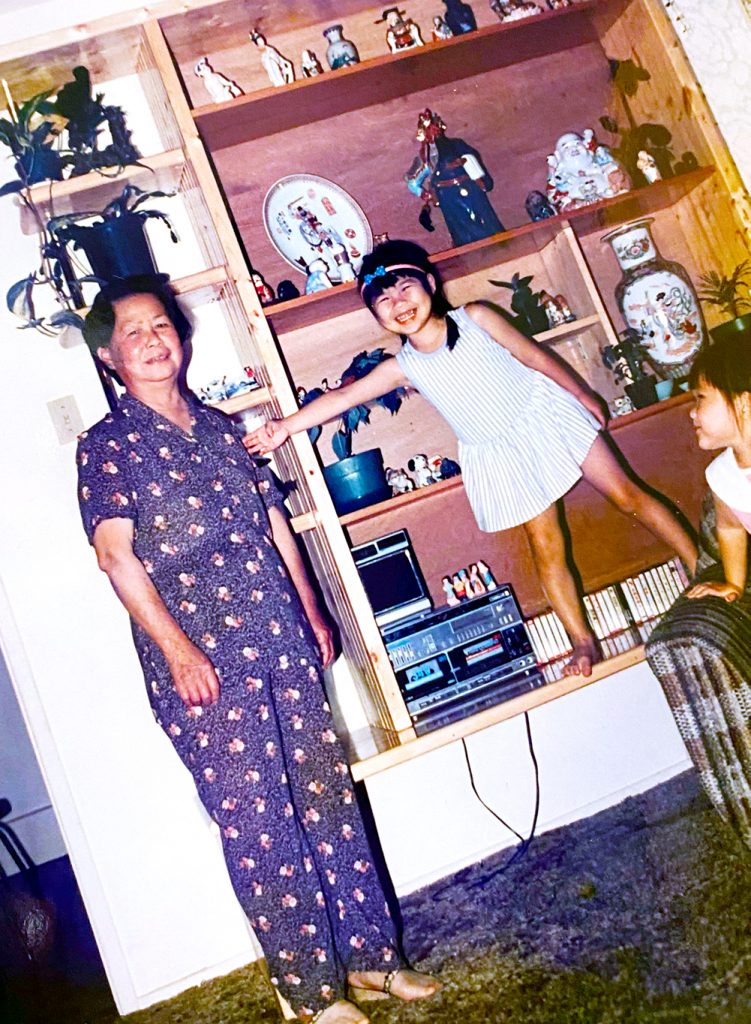
Do you remember your first betrayal?
Growing up in an immigrant family, my parents had to work really hard to provide for our family. My grandmother was my main caretaker and was the closest adult I had in my life.
I remember I had this moment of clarity as a child, I don’t recall how old I was, but I realized that my grandmother was bitter and resentful. She was constantly saying my mother was not good enough, or not doing enough for us, though my mom work long hours and still coming home to clean and cook to provide for our family.
I remember almost snapping into reality and thinking that my grandmother was lying to me and worse of all, slowly poisoning me with her toxic view of the world.
When you are a child, how do you know when to cut off a toxic relationship?
My world fall apart, my grandmother who I had trusted the most, had been betraying me all along. She was slowly trying to turn me against my own mother and I was too young to realize it until this very moment. The love I felt for my grandma turned to resentment towards her, I realize now that was mirroring her behaviour towards my mother.
I never spoke to my grandmother about it, because we never talked about our feelings in our family and it did not feel safe to do so. Instead I drifted away from my grandmother, minimized my interactions with her, and kept my feelings bottled up.

I never processed what had happened until I learned how to get in touch with my own emotions. As with many cultures where we are told to put family or the collective first, we were never really given the tools to understand and express our feelings.
I didn’t learn how to forgive her until many years after her death. I forgive my grandmother for the childhood trauma she impacted on me. I recognize she was only mirroring what she was taught. She simply didn’t have the tools to work through her bitterness and move on to live a happy life. I had to let this anger and sadness go, I had to forgive myself for holding on to the resentment I had for so many years.
If you hold onto grudges, resentment or anger, you can end up bitter, unhappy and alone. Forgiveness is truly a freeing experience, as you let the past go and give yourself permission to flow into the future.
In order to forgive, you must commit to change. You can start by:
- Start writing down past incidents that occurred that negatively effected you. Who was responsible and what did they do?
- Let yourself feel your emotions when reflecting on these past events
- Acknowledge how they have affect your behaviour
- Work towards releasing these emotions and behaviour that no longer serves you
- You can choose to forgive the person who’s offended you, if you cannot forgive that person, then forgive your past self that was in that situation
- Then begin to remove yourself from the victim role
- Release whatever power and control that person or situation has over your life
- You can also practice empathy by replaying the incident from the other person’s point of view
- Would you have reacted similarly if the roles were reversed?
- Where do you think that person was dealing with?
- Have you had an experience where someone would not forgive you?
- Use a guided mediation, journal, pray or talk to someone who you respect and is compassionate and impartial, such as a a mental health provider, spiritual leader, loved one or friend
- Forgiveness is a process and takes time. You may have to revisit and forgive several times
- You may consider finding a support group or a therapist or counsellor
Imagine how it would feel to forgive and the positive impact it would have on your life.
What is holding you back? Who do you need to forgive?